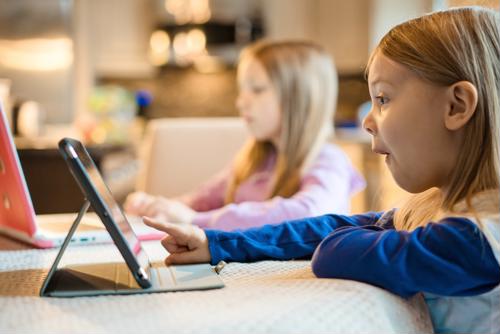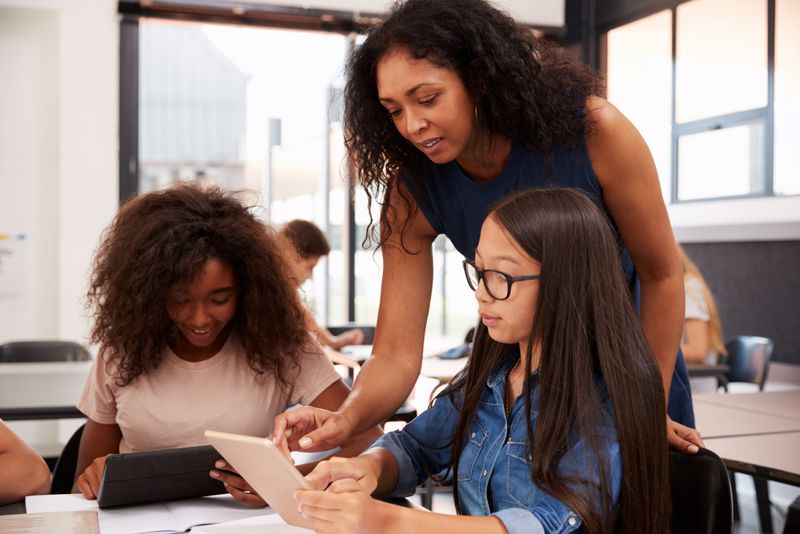
Impact of IoT in the education sector
By xMarch 9, 2022
Until recently, education remained largely the same: buy books, show up to class, write down notes, study, and take the tests you need to pass. How students were taking in new information did evolve over the years to involve laptop computers for note-taking, online books and even participating in class over electronic devices. Then the COVID-19 pandemic introduced a world of technological education solutions that turned the industry upside down and fully online and remote.
The internet of things, or IoT, has disrupted the education sector and helped improve the safety and connectivity of students, teachers and administrators. This article dives into the technology that changed the world and the impact IoT has had on the newest generation of learners.

Technology in education
Business Insider noted in February 2022, that technology has streamlined not only the communication among educational institutions but also leveled up the lessons teachers are offering their students, how they keep track of resources, and introduced personalized education for students.
What does personalized education look like? When a student opts to engage online with a class and its professor, the data that is shared, such as how quickly the student can get through the reading assignment and answer questions, as well as how they collect research to complete projects, can inform the professor on the unique learning ability of each student. These data points can help keep an increasingly online classroom engaged so each learner still feels seen, heard, and cared for. These technologies can even be automated depending on how robust the platform is that the educator is using.
This technology can impact grades from kindergarten to senior classes in college, and it doesn't stop with students, but reaches their guardians as well. A caretaker can choose to get more involved with their child's education with apps like ClassDojo that allow caretakers to see their children's school days through pictures and captions. In a world where more families are operating as two-income households to stay afloat, these connectivity apps can help parents feel supported and grant them access to information so they can better guide children at home.
The impact of IoT on education
An experiment published in Education and Information Technologies in 2022 found that the negative impact on young children with exposure to IoT was minimal. It helped children in several ways, we will explore these reasons to follow.
The first implication of early-age IoT exposure is the chance to learn ubiquitously. Autonomous learning is a huge part of setting children up for success later in life — one example would be in college where there is no parental figure to make sure they do their work on time or at all. Learning how to problem solve on their own can help both academically and socially. While the first exposure to IoT for children is usually through online gameplay, those experiences do advance the relevant skills in a way that playing with dolls or building blocks could not in the past.
Secondly, these children will grow to understand the difference and connection between the physical and virtual world. In raising a generation of children who could be essentially raised by technology, parents have the opportunity to explore what the digital world could look like for their children as well as how these features are different from that of their physical reality.
A research article by Jackie Marche in Sage Journals discovered that the study child, Amy, over two months of observation, was able to develop agency on how she wanted to play and learn. The study found that by being offered both physical and digital opportunities for play and learning, she was able to experience more complexity in her day-to-day compared to only choosing one type of learning pattern.
Business Insider noted that more than a quarter of the parents surveyed (31%) said their children have had a smartphone between the ages of 6 and 10. These digitally native children have no choice but to transform education with their use of the IoT.
A connected future with Perle
We are proud supporters of education and the future it holds for its students. To future proof this sector for the next generation of learners, we offer Fiber Media Converters to enhance the bandwidth capacity and extend fiber links over greater distances for educators. We have helped education institutions from Purdue to Pennsylvania State University, and we can help your school as well. Check out our education page for success stories and more information.



